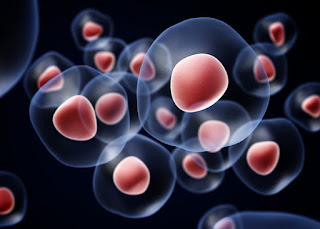 |
| image credit: healthywomen.org |
A team of scientists at the Research Institute of the McGill University Health Centre (RI-MUHC) and McGill University have identified three genes responsible for recurrent molar pregnancies, a rare complication that occurs when a non-viable pregnancy with no embryo implants in the uterus. The results of this study could have important implications, since until now very little is known about the genetic causes of all forms of fetal loss. Their study has recently been published in The American Journal of Human Genetics.
In Quebec, molar pregnancy occurs in about one in every 600 pregnancies, and half of these are characterized by a total absence of maternal chromosomes. Due to an imbalance in the number of chromosomes supplied from the mother and the father, the placental tissue grows abnormally and forms a tumour, leading to a malignant cancer in approximately 15 to 20 per cent of cases. Molar pregnancy is the most common form of all placental diseases (or trophoblastic diseases).
"Our findings add three new genes to the list of mutations leading to fetal loss and will allow for more DNA testing for patients in order to prevent the recurrence of molar pregnancies and provide better genetic counselling and management for couples," says lead study author Dr. Rima Slim, who is a researcher in the Child Health and Human Development (CHHD) Program at the RI-MUHC and an associate professor of Human Genetics and Obstetrics and Gynecology at McGill University.
In Quebec, molar pregnancy occurs in about one in every 600 pregnancies, and half of these are characterized by a total absence of maternal chromosomes. Due to an imbalance in the number of chromosomes supplied from the mother and the father, the placental tissue grows abnormally and forms a tumour, leading to a malignant cancer in approximately 15 to 20 per cent of cases. Molar pregnancy is the most common form of all placental diseases (or trophoblastic diseases).
"Our findings add three new genes to the list of mutations leading to fetal loss and will allow for more DNA testing for patients in order to prevent the recurrence of molar pregnancies and provide better genetic counselling and management for couples," says lead study author Dr. Rima Slim, who is a researcher in the Child Health and Human Development (CHHD) Program at the RI-MUHC and an associate professor of Human Genetics and Obstetrics and Gynecology at McGill University.





